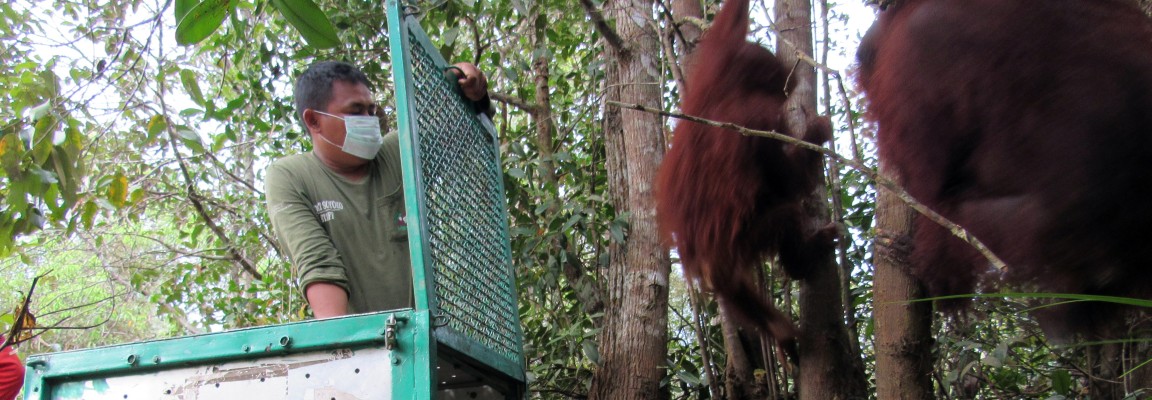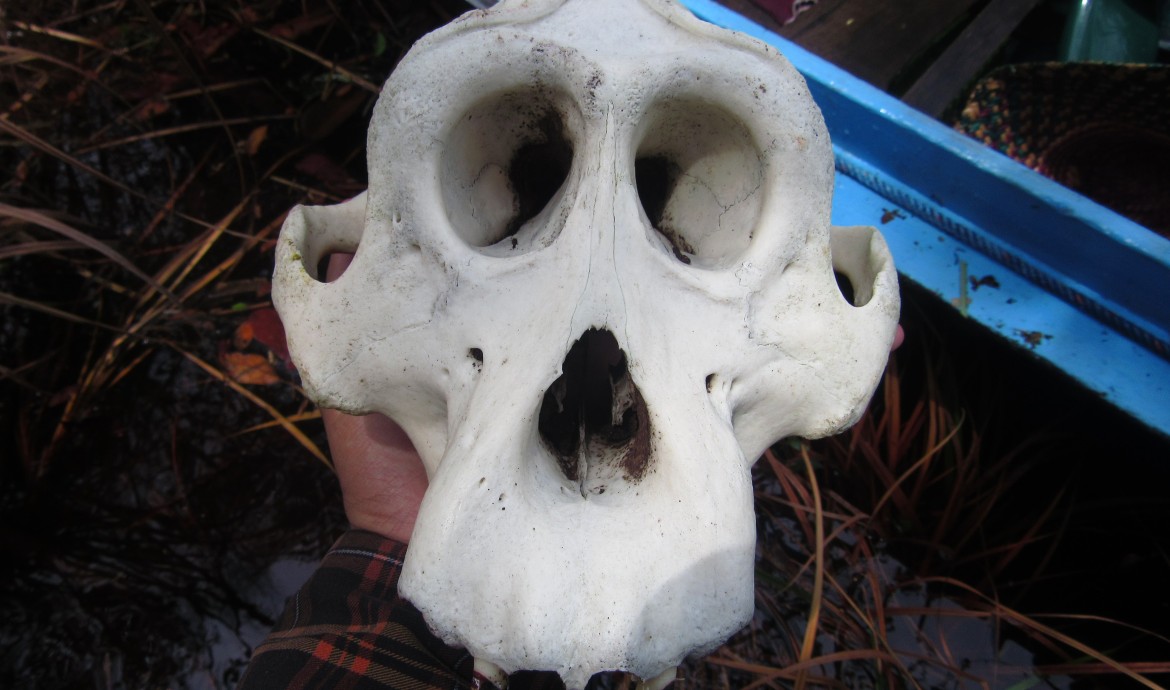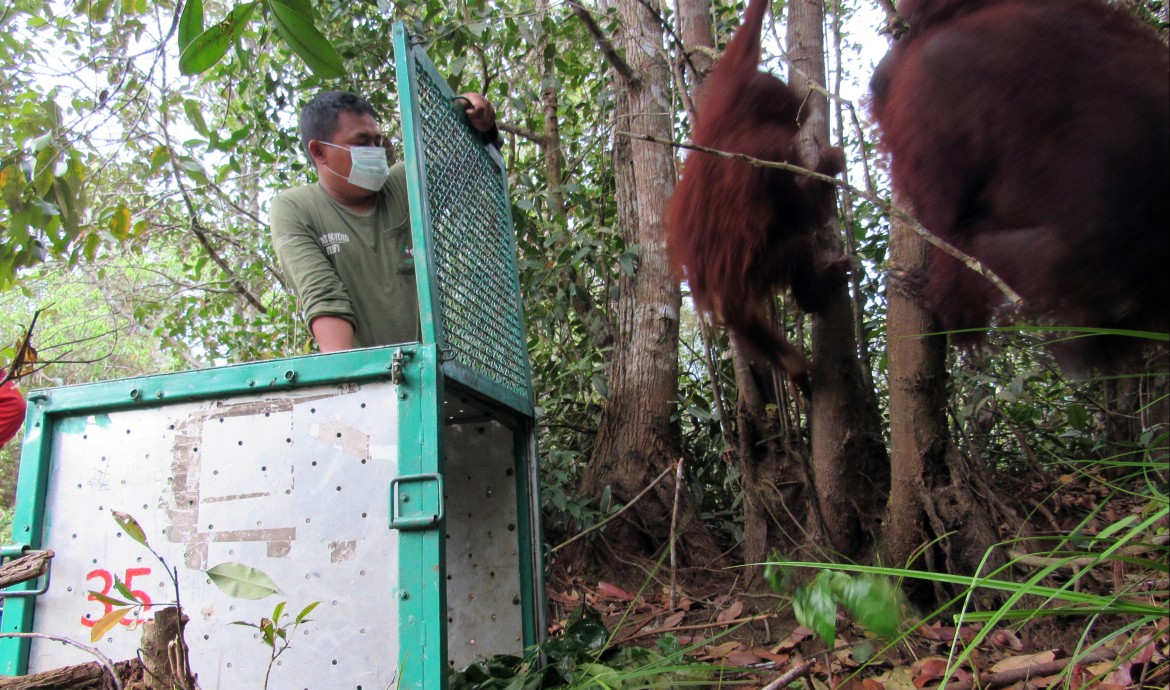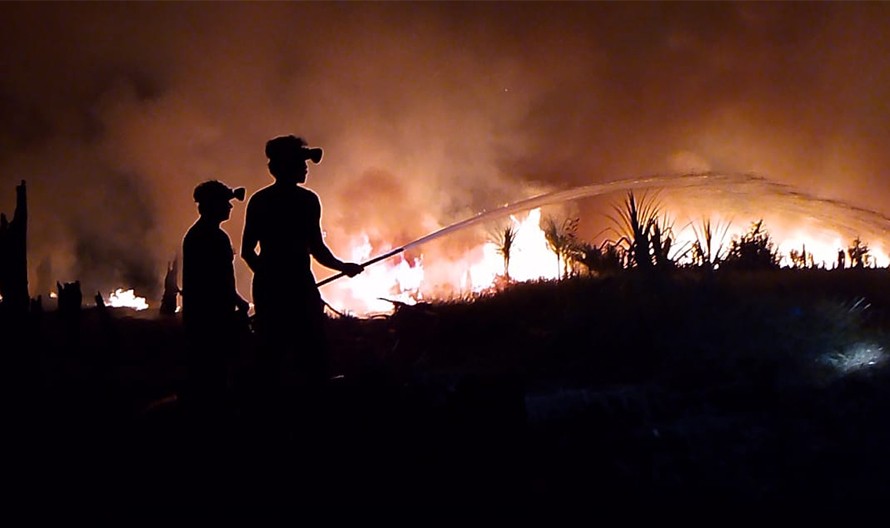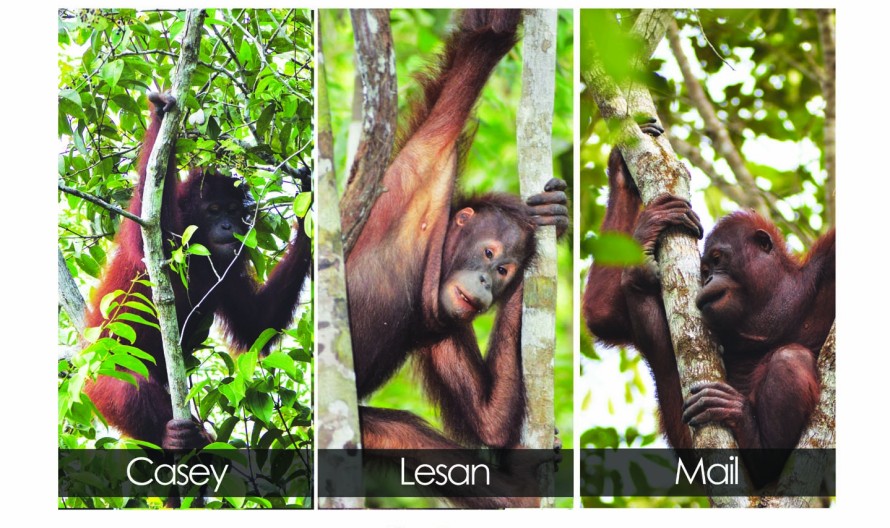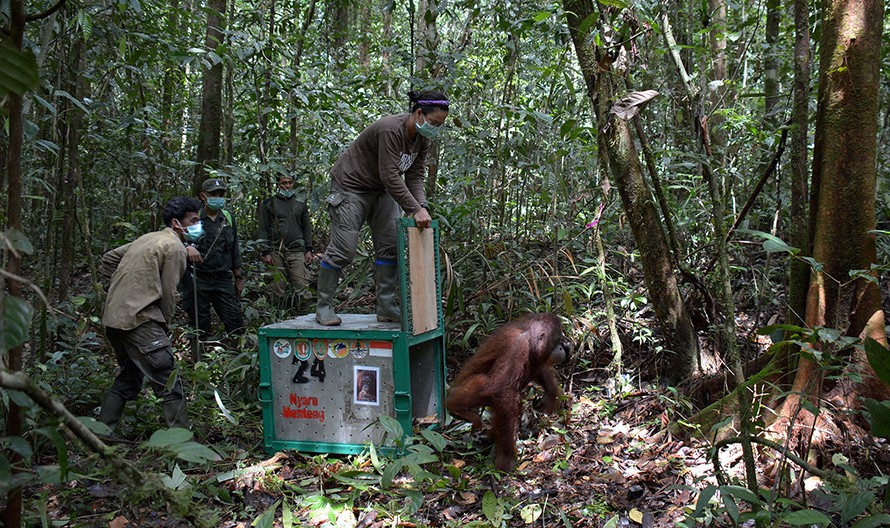Following the recent devastating fire outbreaks across Kalimantan and the discovery of 2 orangutan remains on the banks of Mangkutub River, Kapuas Regency, Central Kalimantan, a joint team from the Central Kalimantan BKSDA and the BOS Foundation through their Mawas Conservation Area Program and Orangutan Reintroduction Program-Nyaru Menteng, launched a major rescue mission. The joint Rescue Team successfully rescued 39 orangutans and released them in a safer location within the Mawas Conservation Area Program area. Many more orangutans are believed to be in need of rescue.
Palangka Raya, Central Kalimantan, 21 December 2015. On 27 November 2015, a joint Rescue Team from the Central Kalimantan BKSDA, and the BOS Foundations’ Mawas Conservation Area Program (Mawas), and the Orangutan Reintroduction Program at Nyaru Menteng (Nyaru Menteng) traveled to the Mawas Conservation Area in Mangkutub, Kapuas Regency, which had been struck by fire a few weeks earlier. The team was following up on a survey conducted by the BOS Foundation several days previously where they discovered the remains of two orangutans in the area. The Rescue Team conducted the rescue mission from 27 November until 7 December 2015.
The rescue team was accompanied by two BOS Foundation veterinarians and during the 10 day mission, they succeeded in rescuing and relocating 39 individual orangutans, consisting of 25 adults (9 males, 16 females) and 14 babies (10 males, 4 females) from an area disturbed by fire in Mangkutub to a forest area around the Mantangai river and our camp in Bagantung, Kapuas Regency. This rescue and relocation mission is known as a translocation. We selected a part of the forest into which we translocated the orangutans, where their is sufficient availablity of food trees and the fact that it is safer from illegal loggers, which we frequently encounter along the Mangkutub River.
The previous survey conducted by the BOS Foundation in mid-November revealed that there were at least 30 individuals trapped in a 500 meter stretch along the banks of Mangkutub River, believed to have been forced out of their natural range as a result of last October’s fire outbreaks. Whilst in the second week of November, a team from the Central Kalimantan BKSDA in collaboration with the teams from Nyaru Menteng and Mawas in Tuanan, confiscated 3 wild baby orangutans from local people in Mangkutub. We did not receive any clarification what happened to the mothers, but we suspect that these babies were orphaned during the forest fires and taken captive by local people. During the fire outbreaks, orangutans were forced to flee their natural range and often this brings them into to closer proximity to humans causing widespread human-orangutan conflict situations.
Head of the Central Kalimantan BKSDA, Dr. Nandang Prihadi, S.Hut., M.Sc., says, “The forest fires and thick haze which massively struck Central Kalimantan throughout last September and October have caused negative impacts not only to our health, but also to protected animals such as orangutans. We are collecting additional data whilst rescuing the remaining orangutans to support the conservation effort. Translocating healthy orangutans to a safer habitat with better food availability is a crucial step to take at the moment. We therefore desperately require good collaboration between all parties, including the regional government and NGOs. Various methods in forest fire prevention and mitigation must be continually done alongside responsive emergency measures, to help us combat fire when a similar tragedy occurs. This is what is stipulated by law and the government regulations.”
Dr. Ir. Jamartin Sihite, BOS Foundation CEO comments, “The fire outbreaks and massive haze were caused by human beings. The fires which occurred in the Mawas Conservation Area in particular, have clearly created problems to the population of 3,000 wild orangutans surviving there. We definitely have to step up in monitoring of all kinds of illegal activities such as poaching and logging which continues to happen on a large scale. Our team in the field encounters a great number of illegally harvested logs being transported through rivers in Mawas Conservation Area. We always report this to the authorities, but the crime still persists. The government surely has to emphasize its commitment on this.”


